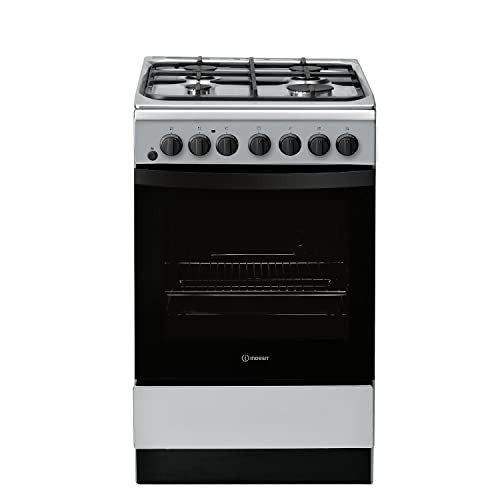What Is Cookers And Hobs? History Of Cookers And Hobs

Understanding Cookers and Hobs: A Comprehensive Guide
Cooking is an integral element of life, and the evolution of kitchen appliances plays a significant function in how efficiently and efficiently individuals prepare their meals. Among these devices, cookers and hobs are two of the most vital instruments found in modern-day kitchens. This short article digs into the differences in between cookers and hobs, examines their different types, and uses insights on their features, maintenance, and selection process.
What are Cookers and Hobs?
Cookers
Cookers are detailed kitchen devices developed for cooking jobs, usually combining an oven and a hob. They are available in various setups and types, dealing with diverse cooking requirements and choices.
Hobs
Hobs, on the other hand, are more concentrated appliances mainly used for boiling, frying, and other stovetop cooking methods. Ovens & Hobs can be standalone units or an integrated part of bigger cookers.
| Feature | Cookers | Hobs |
|---|---|---|
| Function | Integrates oven and hob | Stovetop cooking just |
| Design | All-in-one unit | Different unit or integrated |
| Types | Electric, gas, double fuel | Gas, electric, induction |
| Installation | Enables more flexibility | Built into the counter top |
| Rate Range | Usually greater | Varies extensively |
Types of Cookers
1. Electric Cookers
Electric cookers utilize electrical energy as their main power source. They frequently feature an integrated oven and multiple cooking zones on the hob.
Benefits:
- Even heat circulation
- Offered in different designs (e.g., freestanding, built-in)
2. Gas Cookers
Gas cookers work on gas or liquefied petroleum gas (LPG). They provide immediate heat control, making them a favorite amongst professional chefs.
Benefits:
- Instant heat adjustments
- More inexpensive operational costs
3. Dual Fuel Cookers
Double fuel cookers combine the heat of gas with the effectiveness of electric ovens. This setup enables the best of both worlds, supplying control and consistent outcomes.
Benefits:
- Flexible cooking choices
- Precise control over stovetop cooking and baking
4. Range Cookers
Variety cookers are larger and more powerful than standard cookers, featuring numerous ovens and hobs for comprehensive cooking tasks.
Advantages:
- Ideal for large households or cooking for events
- Provides different cooking options in one appliance
Kinds of Hobs
1. Gas Hobs
Gas hobs are favored for their fast heating and strong flame, making them outstanding for burning and stir-frying.
Advantages:
- Instant heat and control
- Suitable with any type of cookware
2. Electric Hobs
Electric hobs heat up using electric coils or glass-ceramic surface areas, supplying a modern look and efficient cooking.
Benefits:
- Easier to clean up
- Consistent surface ideal for different pots and pans
3. Induction Hobs
Induction hobs use electromagnetic fields to heat pots and pans directly, using quick and energy-efficient cooking.
Advantages:
- Safe (cool surface area after eliminating cookware)
- Energy-efficient and exact
4. Strong Plate Hobs
These standard hobs use strong electric plates that warm up gradually.
Advantages:
- Rugged and long lasting
- Generally more economical than other types
Secret Features to Consider
When selecting a cooker or hob, numerous features ought to be considered:
- Size and Space: Consider the size of your kitchen and the quantity of work area required.
- Cooking Style: Choose based upon preference-- gas for control, induction for performance, and so on.
- Efficiency Ratings: Look for energy-efficient designs to lower energy expenses.
- Reduce of Cleaning: Smooth surfaces assist in easy maintenance.
- Safety Features: Automatic shutoff, flame failure devices, and child locks improve security.
Upkeep Tips
Keeping cookers and hobs prolongs their lifespan and makes sure safe operations.
- Routine Cleaning: Wipe down surface areas after usage to avoid accumulation.
- Examine Seals: Check oven door seals routinely for wear and tear to maintain performance.
- Service Regularly: Schedule professional servicing a minimum of as soon as a year.
- Appropriate Cookware: Use cookware proper for your hob type to avoid damage.
Regularly Asked Questions (FAQs)
What is the difference in between a cooker and a hob?
A cooker combines an oven and hob in one unit, while a hob is normally a standalone home appliance for stovetop cooking.
Do I require an expert to set up a gas cooker or hob?
Yes, professional setup is advised for gas home appliances to make sure security and compliance with regional guidelines.
Can I use any kind of cookware on induction hobs?
Induction hobs need magnetic pots and pans. Stainless-steel or cast iron pots work best. Non-magnetic materials will not heat up.
Are electric cookers more energy-efficient than gas cookers?
While both have benefits, electric cookers tend to be more energy-efficient overall, especially with contemporary, high-efficiency models.
How typically should I clean my cooker or hob?
It is best to clean them after each usage and perform a thorough cleaning weekly to avoid buildup and residue.
Understanding the differences, features, types, and upkeep ideas for cookers and hobs is vital for any home cook. By selecting the right home appliance suited to their cooking needs, users can boost their cooking experience, making meal preparation an efficient and pleasurable task. Whether going with the immediate control of gas or the smooth efficiency of induction, choosing the appropriate cooker or hob can cause a notably improved kitchen experience.

